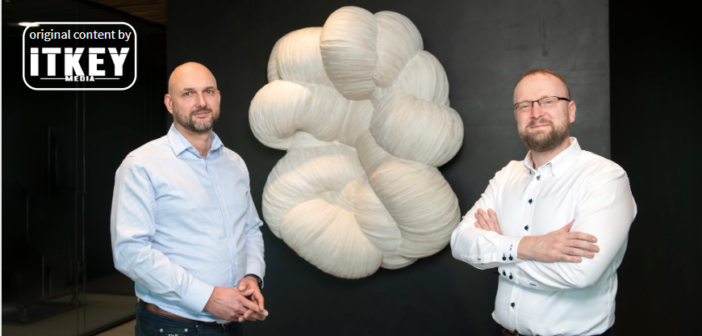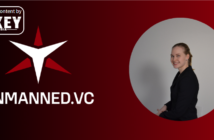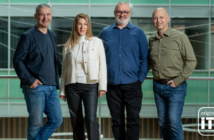- Tachles VC connects Israeli deep-tech innovation with CEE market access and talent
- The fund focuses on early-stage B2B startups in AI, cloud, and cybersecurity
- Its Czech Israeli Technology & Innovation Forum (CITIF) fosters cross-border collaboration and cultural exchange between Czech and Israeli startups
- Tachles VC promotes fast execution, global ambition, and strategic growth in both CEE and Israel
It’s no secret how Israel’s reputation as the ‘Start-up Nation’ offers a powerful model for emerging tech ecosystems in the CEE region in general and the Czech Republic. The Israeli ecosystem’s success in scaling deep-tech ventures and fostering innovation through strong founder culture, R&D, and global networks offers valuable lessons for regions aiming to transition to knowledge-based economies. Connecting Israeli expertise with local talent promises invaluable assistance for CEE countries in accelerating the growth of their own startup ecosystems and enhancing their global competitiveness.
Tachles VC in Brief
Founded in 2023, Tachles VC is an early-stage venture capital firm focused on deep-tech startups from Israel and the CEE region. Established by long-time partners Karel Tušek, David Marek, and Sivan Kanev, the firm builds on over a decade of investing in the Israeli tech ecosystem. Mr Kanev introduced his Czech colleagues to the Israeli innovation scene in 2014, showcasing its dense concentration of unicorns and vibrant early-stage pipeline—earning it the nickname ‘Start-up Nation.’
Tachles VC specializes in B2B technologies across cybersecurity, cloud infrastructure, and artificial intelligence—three interlinked sectors that are central to digital transformation and global competitiveness. With Israel at the forefront of these fields, the firm identifies high-potential startups early and invests with speed and sector-specific precision.
The fund selects companies based on their technological focus, founding team strength, and international growth potential. It provides hands-on strategic support and leverages key global connections, including access to the US through partner Robin Bienfait, founder of Atlanta’s largest tech park.
Tachles VC also co-founded the Czech Israeli Technology & Innovation Forum (CITIF), fostering collaboration between Israeli startups and Czech businesses, academia, and policymakers to bring Israeli innovation practices into the heart of the CEE economy.
How Tachles VC Powers Cross-Border Innovation: Bridging Israeli Deep-Tech and CEE Startup Ambition
ITKeyMedia approached Tachles VC’s managing partners David Marek and Karel Tušek to ask about their fund, its mission and ambition, and the opportunities and perspectives of CEE-Israeli ecosystemic synergies.
What is the background of Tachles VC’s founding partners? Was there any particular trigger that inspired them that an entity like Tachles VC was needed and convinced them that they were the right people for the job?
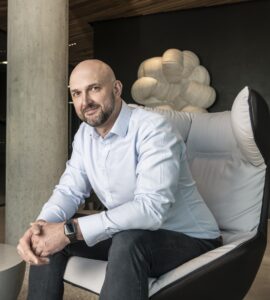
Karel Tušek, Managing Partner at Tachles VC
Karel Tušek: I have been in tech my entire life. From founding one of Prague’s first ISPs to managing large-scale IT systems and later scouting startups and managing the portfolio for Springtide Ventures. My turning point came in 2015, when I first got direct exposure to the Israeli tech ecosystem. The energy, ambition, and speed of execution there are unmatched. Although there are hundreds of VCs in Israel, mostly from the US, there’s only a handful of them focusing on the intersection of cloud, AI and cybersecurity. Even fewer who can connect both with Europe and the US. And certainly none with headquarters in the Czech Republic. Together with David and our partners, we just followed this opportunity.
David Marek: My journey started in finance, with over two decades working for top European financial institutions. At Springtide Ventures, I helped refine the investment strategy toward deep tech Israeli startups, which showed impressive returns. It became clear to me that what the market lacked was a fund that could combine Israeli innovation with the operational and capital depth of CEE. Founding Tachles VC with Karel and our Israeli partners was a natural evolution. We knew we had the experience, the network, and the focus to make it work.
Tachles’ translates as ‘getting to the point.’ Can you elaborate – How does this ethos shape your investment approach and interactions with founders?
KT: For us, Tachles is more than just a name, it is a discipline. We focus on clarity, speed, and trust, both internally and with founders. We don’t do buzzwords. If we like an idea, the founder will know right away. If we see risks, we will be upfront. Israeli founders especially appreciate that. It builds stronger partnerships and saves everyone time.
With a focus on AI, cybersecurity, and cloud infrastructure, what are your methods for balancing investing in cutting-edge technologies and ensuring market readiness and scalability?
KT: We target companies with strong technical intellectual property and global ambitions, but we don’t just look at technology. We assess whether the product can solve problems to come in 2-5 years. We study underlying trends and seek tomorrow’s solutions. But with the same discipline we also look at the founding team’s ability to commercialize and iterate. Vision is great, but execution is everything.
DM: A critical component of our investment process is conducting thorough due diligence on the start-up’s founding team. We must be confident in their ability to turn cutting-edge technology into a product that addresses a well-defined customer need, and to scale that product into a global business. Our evaluation includes reviewing each founder’s track record, assessing their team dynamics, and understanding how their skills complement one another. Fortunately, Israel’s high concentration of serial entrepreneurs makes this process more efficient compared to less developed ecosystems.
Tachles VC’s portfolio include such diverse startups as Hirundo, Brinker AI, and Chronom.ai. What are the common criteria for your selection?
KT: What unites our portfolio companies is their deep tech DNA, global potential and B2B orientation. We back founders who are obsessive about their mission and have the stamina to build across markets. We also look for a certain kind of edge, either technical, behavioral, or market-driven. But don’t get us wrong, all these companies are exactly within our focus, addressing cybersecurity or infrastructure needs with advanced tech.
DM: We invest in early-stage startups at the nexus of cybersecurity, cloud, and AI infrastructure—fields that are rapidly converging. A unifying theme across our portfolio is the transformative impact of AI in simplifying and strengthening complex IT systems. Our companies enhance cyber resilience, scalability, and operational efficiency, all while enabling seamless compliance with the diverse regulatory demands faced by modern global enterprises.
Do geopolitical factors influence your investment decisions, especially when dealing with startups operating across multiple – sometimes geopolitically volatile – regions?
KT: Absolutely. Geopolitics is now a hard constraint, not just a background noise. We consider data sovereignty, export restrictions, and cybersecurity compliance in every investment. At the same time, we believe technology can thrive even in complex environments, if managed intelligently.
DM: I can add that while Israel has its challenges, it is also shown incredible resilience. Startups there are often battle-tested, literally and metaphorically. That gives them a level of focus and adaptability that we value highly.
What are CEE market’s unique advantages for Israeli startups, and how does Tachles VC facilitate this? Conversely, how do Czech and other CEE startups benefit from Israeli innovation practices, and what challenges do they face in adopting them?
KT: CEE offers Israeli startups a cost-effective, engineering-rich environment and a strategic entry point into the EU market. We help them localize, navigate regulations, and build reliable ops teams here.
DM: Israeli companies have a unique startup mindset, everyone wants to be an entrepreneur, everyone wants to expand their startup abroad as soon as possible. Israel has one of the highest concentrations of so-called serial entrepreneurs. That is their mentality, which is unique. Czech founders can learn a lot from. That is where CITIF comes in. It is not just a forum, it is a bridge.
How does the Czech Israeli Technology & Innovation Forum support Israeli startups expanding into Europe and help Czech companies adopt Israeli innovation. How do you measure the progress toward this goal?
KT: The Czech Israeli Technology & Innovation Forum (CITIF) has successfully completed its initial proof of concept, showing strong potential to bridge Israeli startups into Europe and help Czech companies tap into Israeli innovation. While we don’t yet have measurable outcomes, we’ve tested the ground and confirmed demand on both sides. We are now scaling up ourselves to deliver concrete results – partnerships, pilots, and cross-border growth.
DM: CITIF is dedicated to bridging the gap between ambitious Israeli startups and Czech corporate clients, while also providing access to a skilled technical talent pool in the Czech Republic. Additionally, CITIF has launched the first-ever Czech-Israeli startup accelerator program. This initiative brings Czech startups to Israel, where they not only gain insights and best practices from their Israeli peers but, more importantly, explore concrete business opportunities with Israeli partners and investors. The inaugural accelerator cohort has just concluded successfully, marking a significant milestone in our journey.
Can you share a success story where Tachles VC played a pivotal role in a startup’s cross-border growth between Israel and the CEE region?
DM: Through our first Czech-Israeli Accelerator, we brought five Czech startups to Israel, where they attracted not only investors’ interest and opened doors for future cross-border growth.
What are the most important cultural differences in entrepreneurial mindset between Israel and the Czech Republic to foster innovation? How does CITIF address them?
KT: The most striking difference is Israel’s fast-paced, risk-taking, ‘fail fast’ mindset compared to the Czech Republic’s more cautious, perfection-seeking approach. Israeli entrepreneurs often move quickly without a detailed plan, iterate openly, and are aggressive in global ambition, while Czech founders may hesitate to scale or test internationally before feeling fully ready with every small detail planned.
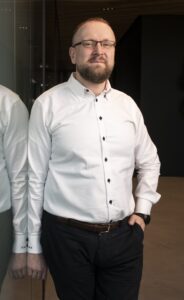
David Marek, Managing Partner at Tachles VC
CITIF helps bridge this gap by exposing Czech startups to Israeli partners, investors, mentors, and founders — immersing them in the Israeli innovation culture, pushing them to think bigger, move faster, and embrace experimentation.
DM: A key distinction between Czech and Israeli founders lies in the Israeli approach to rapid execution, high tolerance for ambiguity, and a strong emphasis on learning through mistakes. For Israeli entrepreneurs, progress is prioritized over perfection. Through CITIF’s Czech-Israeli accelerator, Czech startups are introduced to this mindset—one that values time as a scarcer resource than capital. This exposure helps them understand that swift action and market feedback are more effective paths to growth than endlessly refining an MVP that hasn’t yet reached customers.
What is Tachles VC’s long-term vision for shaping the tech ecosystem synergies between Israel and the CEE region?
KT: We want to be the go-to fund for founders who are building globally from Israel and CEE. In the long run, we hope to catalyze an ecosystem where knowledge, capital, and talent flow freely between these regions.
DM: It is about building a corridor, not just a portfolio. We envision a network of startups, corporates, and investors that collaborate across borders.
Overall – Given the current global tech landscape, what emerging trends do you foresee in AI and cybersecurity for which startups should be prepared?
KT: First, AI is moving from experimental to operational. Startups must focus not just on building models, but on integrating AI deeply into workflows, infrastructure, and decision-making to deliver real outcomes.
Second, as cloud and AI infrastructure grow in complexity, the only scalable way to manage and optimize these environments is through even more AI. This creates a loop: the more AI and automation we deploy, the more new attack surfaces we expose–from data poisoning to adversarial attacks and model theft.
This gives rise to a new frontier: AI security, securing not just systems, but the models and inference processes themselves, something that barely existed a few months ago. Startups that combine AI-driven innovation with AI-powered cybersecurity will be uniquely positioned to thrive in this rapidly evolving landscape.
DM: Artificial intelligence is not just a passing trend – it’s a foundational shift that’s here to stay. However, the pace of its adoption across the corporate world will largely hinge on how seamlessly it can be integrated into existing IT infrastructure. Many organizations rely on legacy systems that are both complex and costly to overhaul. For AI solutions to gain traction, startups must prioritize frictionless integration, robust data management, operational scalability, and an intuitive customer experience. These areas present both significant opportunities and formidable challenges for tech startups aiming to serve enterprise clients.
On the cybersecurity front, AI is ushering in a new era of risk. Traditional cybersecurity methods are increasingly inadequate in the face of emerging AI-driven threats. As AI models become more deeply embedded in decision-making processes, they also become high-value targets. Cybercriminals are now focusing on compromising model integrity – either by poisoning training data or exploiting weaknesses in how models are designed and deployed. This evolution is giving rise to a new domain: AI-specific cybersecurity. We expect this field to grow rapidly, paralleling the advancement of AI itself, and to become a critical focus for both innovators and defenders in the tech ecosystem.
Such nurtured synergy between Israeli and CEE startup ecosystems presents a powerful opportunity to accelerate innovation in AI, cloud infrastructure, and cybersecurity. By combining Israel’s deep-tech expertise and startup mindset with CEE’s engineering talent and market access, both regions stand to benefit from faster scaling, richer collaboration, and stronger global competitiveness. Initiatives like Tachles VC’s CITIF are not only bridging geographies but also helping regional tech ecosystems evolve and thrive together.

Kostiantyn is a freelance writer from Crimea but based in Lviv. He loves writing about IT and high tech because those topics are always upbeat and he’s an inherent optimist!


